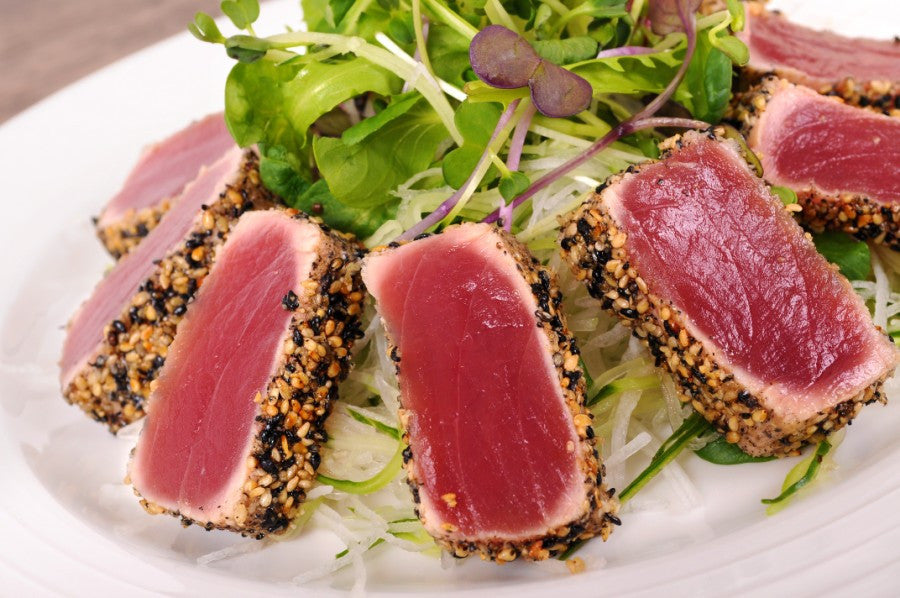
Salmon vs Tuna: Compared!
Share
Because fish and shellfish are great sources of a wide range of nutrients, you should have at least two portions of fish a week, including one of oily fish, which are known to contain high levels of omega-3 fatty acids and vitamin D, among others. Salmon and tuna are examples of oily fish. While they are both large fish with great health benefits, let us take a closer look at how they compare nutritionally.
With its sleek, streamlined body, tuna is an agile predator found in the open oceans of the world. Salmon, on the other hand, are born in fresh water, migrate to the ocean, and return to fresh water to spawn.
For every ounce of tuna and salmon, the following shows how they compare:
Tuna contains less fat than salmon: 0.5g versus 4.5g of fat, respectively. However, the fact that salmon contains more fat than tuna can be a good thing as not all fats are bad. Omega-3 fatty acids, for instance, have several health benefits, such as keeping your immune system strong and boosting your heart health. An ounce of salmon can provide you with 1095mg of the essential fatty acids as opposed to tuna’s 240mg for the same serving.
Both kinds of fish are rich in vitamins, including niacin (vitamin B3) and vitamin B12. Niacin has been found to help lower bad cholesterol, reduce atherosclerosis or hardening of the arteries, and lower the risk of a second heart attack. Tuna contains more of this vitamin than salmon: 58% versus 133% of your daily need of the vitamin, respectively. However, in terms of vitamin B12, salmon wins; it can give you 168% of your daily need of the vitamin compared to tuna’s 83%. Vitamin B12 has positive effects on your mood, memory, heart, skin, digestion, and more. It is also essential for the maintenance of your nervous system.
Phosphorous is another nutrient that both salmon and tuna have plenty of: 38% and 40% of your daily need of the mineral, respectively. You need phosphorous to keep your bones strong, to produce energy, move your muscles.
Moreover, both tuna and salmon are low in calories and great sources of protein. However, tuna has lower calories and more protein than salmon. The difference between the two in terms of calorie and protein count is not that significant, though. So both can be great additions to your diet if you are looking to lose weight.
To sum up, consuming fish such as tuna and salmon can be good for your health. They are low in calories and high in protein, so they can help you maintain healthy weight. They are also rich in nutrients, such as omega-3 fatty acids, vitamins, and minerals, which allow your body to function properly. For fresh Tuna delivered to your door.
